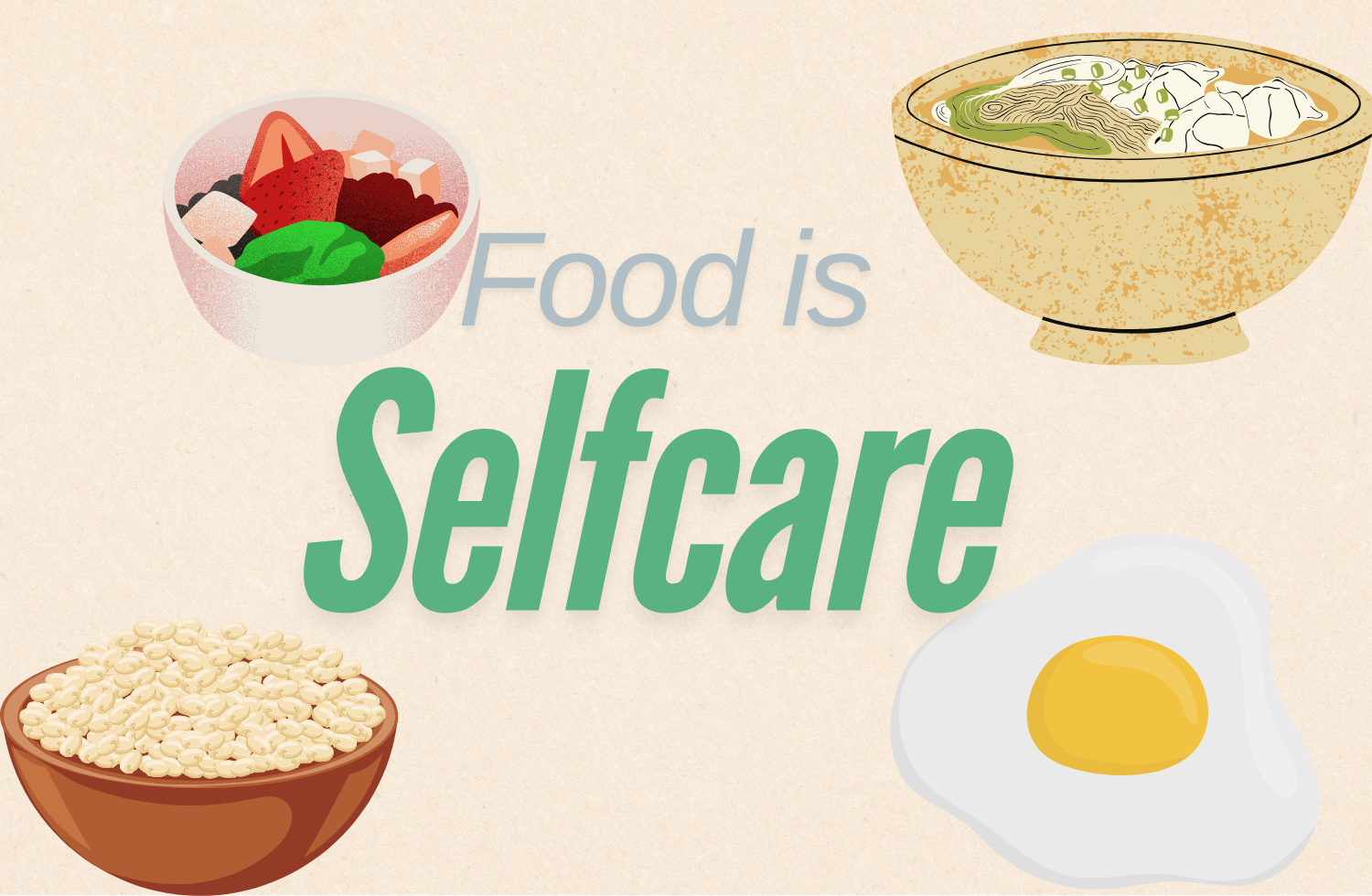Self-Care Starts On Your Plate

As students, life can feel like a never-ending cycle of métro, school, and sleep. With our schedules packed full of classes, assignments, and social activities, it's easy to forget that we "are what we eat." Food often falls to the bottom of our list of priorities, but what we eat plays a massive role in how we feel and perform academically.
In a generation obsessed with self-care, looking good, and wellness trends, it's surprising how little attention we give to the connection between our diet and feeling our best, mentally and physically.
Feeling good shouldn't just be about skincare routines or supplements we get from TikTok—it starts with what's on our plate. The key to maintaining a healthy diet as a student isn't spending loads of money on trendy health foods—it's making the most of affordable, nutritious ingredients and taking control of your meals.
The Myth of Healthy Eating Being Expensive
There's a persistent myth that eating healthy automatically means draining your bank account, but that couldn't be further from the truth. The idea of a "cheap" diet often brings instant ramen and frozen pizzas to mind. The cost of fast food and eating out adds up quickly, usually leaving us with less energy and poor nutrition.
Some of the healthiest foods—like grains, legumes, and seasonal vegetables—are often the cheapest items on the grocery list. What's more expensive is relying on takeout or snacks, which lack the nutrients we need and make us feel mediocre throughout the day. It's all about changing the mindset that healthy equals pricey and focusing on eating simple, whole foods. Think about it as an investment in yourself.
Budget-Friendly Tips for Eating Well
How do you eat healthy on a student budget? The trick is to focus on planning and being strategic with your purchases. Here are some tried-and-true tips for eating well without overspending.
- Meal Planning: One of the easiest ways to save money and ensure you're eating well is by planning your meals for the week. When you know what you will eat, you're less likely to grab something unhealthy (and expensive) on the go. Create a shopping list based on three meals you want to make for the week. You can modify your shopping as the week goes on.
- Batch Cooking: Cooking in large batches and saving the rest for upcoming days is a lifesaver. Not only will this save you time during the busy week, but it also means you'll have a full meal ready when you get home from school.
- Shop Smart: Buy in-season produce, which is often cheaper and fresher. You can also save money by purchasing store-brand or generic products.
- Fall in Love with the Basics: Some of the most nutritious and versatile foods are also the most affordable. Staples like lentils, chicken, whole wheat pasta, oats, eggs, ground beef, and frozen vegetables should be shopping basket staples. These ingredients are easy to prepare and can be used in different meals.
- Ready-Made Meals as a Backup: Let's face it—sometimes you don't have the time or energy to cook from scratch. That's where the ready-made meals from the fridge aisle come in handy. Whether you're shopping at Lidl or Franprix, the fridge section is full of affordable, healthier alternatives to eating out. With many options under 5 euros, you can find a variety of cuisines, from Indian curries to Italian pasta. These meals are convenient to have on hand for those busier days without compromising your budget or your time. You can buy these and take them to school to grab a quick lunch and warm it up in one of the microwaves around campus.
- Use the Health Rating System: When you're in a rush, the French food packaging health rating system, Nutri-Score, is a great guide. It's a simple A-E system where A is the healthiest choice and E is the least nutritious. Keep an eye on this system when picking ready-made meals or packaged foods to make better choices even when in a rush.
Photo by Alana Valdes
Nutritional Essentials on a Budget
When we think about eating healthy, we tend to imagine restrictive diets or expensive superfoods. But, as students, our focus should be on balance. Our bodies need protein, healthy fats, fiber, and vitamins to function at their best. Thankfully, there are plenty of budget-friendly options to help meet these needs.
- Protein: Choose affordable sources like eggs, canned fish, beans, lentils, and chicken. These items pack a protein punch without breaking the bank.
- Healthy Fats: Look for budget-friendly sources like olive oil, avocados (when in season), and nuts. These fats are essential for brain function and energy.
- Fiber and Vitamins: Frozen vegetables are often cheaper than fresh but are just as nutritious. You can also get your fiber from whole grains like oats, brown rice, and quinoa. These foods provide fiber, essential nutrients for digestion, and sustained energy and focus.

Easy and Healthy Recipe Ideas
Cooking healthy meals can be simple, relaxing, and delicious. Here are a few simple, budget-friendly ideas to help you stay full and feeling good:
- Yogurt with Chia Seeds, Blueberries, and Honey: This easy breakfast is full of micronutrients and packs a punch of fiber. It's also a balanced meal with all three macronutrients—protein, healthy fats, and carbohydrates. Mix chia seeds into yogurt, top with fresh blueberries, and drizzle with honey. It's quick, delicious, and perfect for starting your day strong.
- Chicken Noodle Soup: Combine celery, carrots, chicken broth, whole wheat noodles, chicken, and whatever herbs you have around. One pot can last a few days and is perfect for cold days!
- Quinoa and Chicken Bowl: Cook quinoa in bulk and pair it with roasted seasonal vegetables, any piece of grilled chicken, and a splash of lemon for a balanced and filling meal.
Eating healthy as a student doesn't have to be complicated or expensive. Remember, taking care of yourself starts from the inside out—what you eat today sets you up for feeling well tomorrow. So, the next time you're tempted to order some Uber Eats, think about how a little time in the kitchen can fuel you, your health, and your schoolwork. Self-care isn't just about looking good—it's about feeling good, too.





